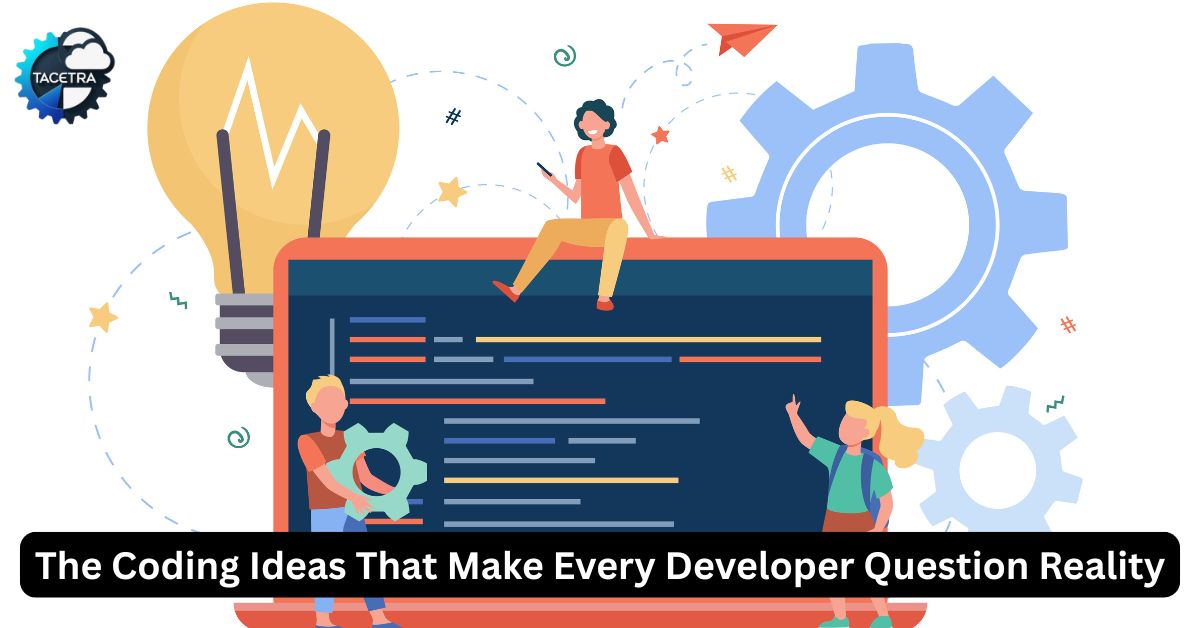Every programmer—whether you’re a newbie building your first “Hello World” or a senior engineer who’s been through more production fires than you’d like to admit—hits certain concepts that feel impossible at first glance.
You read the definition.
You watch the tutorials.
You ask ChatGPT (don’t worry, I’m not offended).
Still, the idea doesn’t quite land.
Recently, we did a dove into LinkedIn and Reddit on the topic:
“What programming concepts took you the longest to understand?”
With over four million developers chiming in, the answers reveal something important: the hardest concepts aren’t about syntax or memorization—they’re about shifting the way we think.
If you’ve struggled with any of the ideas below, you’re in great company.
1. Recursion: The Moment You Stop Controlling Everything
Recursion topped the list instantly. At first, new developers cling to the textbook definition:
A function that calls itself.
But this is where confusion begins. Recursion isn’t about looping back—it’s about shrinking the problem.
As one Redditor put it perfectly:
“Recursion is not about calling the function again — it’s about reducing the problem.”
You don’t trace every call manually. You trust the smaller version of your function. Your real job?
Define:
- A base case — when to stop
- A recursive step — how to break the problem down
A Quick Example: Factorial
def factorial(n):
if n == 1 or n == 0:
return 1
return n * factorial(n - 1)
print(factorial(5)) # Output: 120
Recursion’s magic shows up in tree traversals, directory scanning, and countless algorithms. Once you stop micromanaging the call stack, everything suddenly clicks.
2. Pointers: Thinking in Memory, Not Variables
If you’ve ever learned C or C++, you probably remember the exact moment you questioned your career choices.
Pointers were mentioned constantly in the Reddit thread—and for good reason.
They force you to think about memory literally, not abstractly.
Imagine your RAM as a giant apartment building:
- A normal variable is the apartment.
- A pointer is a slip of paper with the apartment’s address.
Understanding the difference between a value and its address is the first big unlock.
A Simple Example
#include <stdio.h>
int main() {
int age = 30;
int *ptr_age = &age;
printf("Value of age: %dn", age);
printf("Address of age: %pn", &age);
printf("Value through pointer: %dn", *ptr_age);
return 0;
}Grasping & (address-of) and * (dereference) is the key. Once that sinks in, entire worlds open up—dynamic memory, linked lists, performance optimization—and yes, the occasional segmentation fault.
3. Asynchronous Programming: Learning to Let Go
Humans think sequentially. Computers… don’t always.
And that’s why asynchronous programming (async/await, promises, callbacks) was another concept developers struggled with.
In a synchronous world, the code waits for each step to finish.
In an async world, the code says:
“Cool, you do your thing—I’ll go handle something else.”
Modern apps rely heavily on this: network requests, UI responsiveness, servers handling thousands of users.
The real challenge isn’t writing async code—it’s managing state, handling errors, and keeping the mental model straight when execution jumps around.
This is also where concurrency tools like semaphores, locks, and monitors emerge—the traffic cops that stop your program from crashing into itself.
4. Abstract Functional Concepts: When Logic Gets Philosophical
Finally, the most mind-bending concepts mentioned weren’t even tied to specific languages—they were tied to functional programming.
Enter monads.
If you’ve ever Googled them, you’ve probably seen the infamous meme-definition:
A monad is just an endofunctor in the category of endofunctors.
Ignore that.
In practice, a monad is just a pattern—a container with rules—used to chain operations cleanly while handling side effects (like errors, IO, or nulls).
Functional programming challenges everything imperative developers take for granted:
- No mutable state
- No side effects
- Pure functions only
Languages like Haskell, Scala, and modern JavaScript force you into new mental territory where logic is explicit and nothing happens “magically” under the hood.
It’s weird.
It’s hard.
And once it clicks, it’s beautiful.
Final Thoughts: The Uncomfortable Truth About Learning to Code
If a concept has taken you days, weeks, or even months to understand, you are not behind—you’re becoming a real developer.
The hardest ideas aren’t technical details. They require a shift in your mental model:
- Recursion teaches trust and reduction.
- Pointers teach you how memory actually works.
- Async programming teaches you to stop thinking in straight lines.
- Functional abstractions teach you to design logic, not just write code.
Every developer hits these walls. Push through them, and each “aha” moment becomes a milestone in mastery. The path to mastery is long, but as this developer conversation proves, the persistence required to reach that “click” is the true measure of a great programmer.
Further Reading: Kotlin vs Scala — Choosing the Right JVM Language
Discover more from TACETRA
Subscribe to get the latest posts sent to your email.
